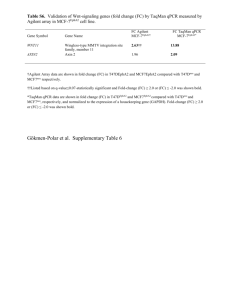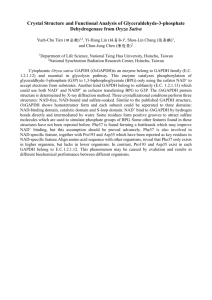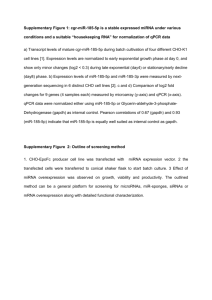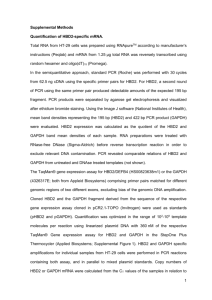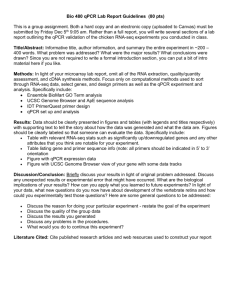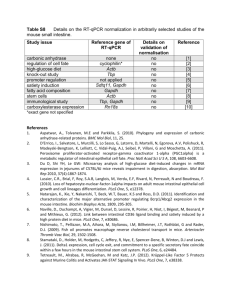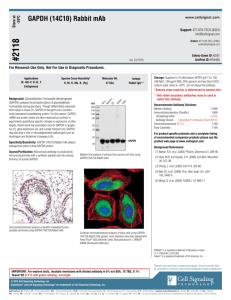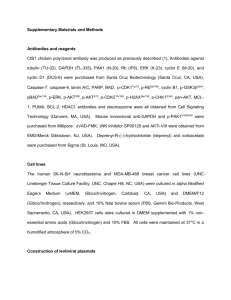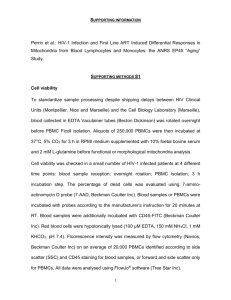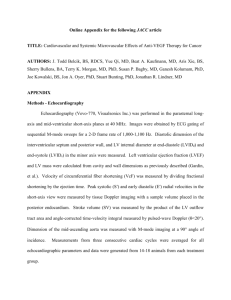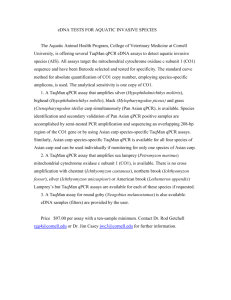Supplemental data include Materials and Methods for Figs. 2
advertisement
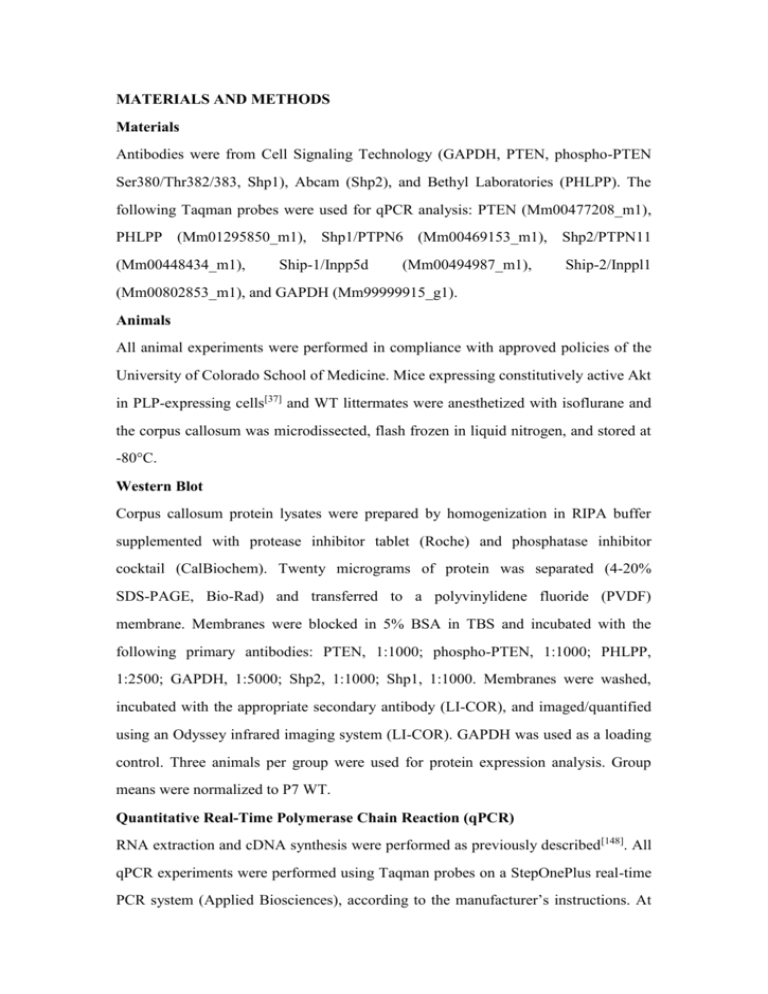
MATERIALS AND METHODS Materials Antibodies were from Cell Signaling Technology (GAPDH, PTEN, phospho-PTEN Ser380/Thr382/383, Shp1), Abcam (Shp2), and Bethyl Laboratories (PHLPP). The following Taqman probes were used for qPCR analysis: PTEN (Mm00477208_m1), PHLPP (Mm01295850_m1), Shp1/PTPN6 (Mm00469153_m1), Shp2/PTPN11 (Mm00448434_m1), Ship-1/Inpp5d (Mm00494987_m1), Ship-2/Inppl1 (Mm00802853_m1), and GAPDH (Mm99999915_g1). Animals All animal experiments were performed in compliance with approved policies of the University of Colorado School of Medicine. Mice expressing constitutively active Akt in PLP-expressing cells[37] and WT littermates were anesthetized with isoflurane and the corpus callosum was microdissected, flash frozen in liquid nitrogen, and stored at -80°C. Western Blot Corpus callosum protein lysates were prepared by homogenization in RIPA buffer supplemented with protease inhibitor tablet (Roche) and phosphatase inhibitor cocktail (CalBiochem). Twenty micrograms of protein was separated (4-20% SDS-PAGE, Bio-Rad) and transferred to a polyvinylidene fluoride (PVDF) membrane. Membranes were blocked in 5% BSA in TBS and incubated with the following primary antibodies: PTEN, 1:1000; phospho-PTEN, 1:1000; PHLPP, 1:2500; GAPDH, 1:5000; Shp2, 1:1000; Shp1, 1:1000. Membranes were washed, incubated with the appropriate secondary antibody (LI-COR), and imaged/quantified using an Odyssey infrared imaging system (LI-COR). GAPDH was used as a loading control. Three animals per group were used for protein expression analysis. Group means were normalized to P7 WT. Quantitative Real-Time Polymerase Chain Reaction (qPCR) RNA extraction and cDNA synthesis were performed as previously described[148]. All qPCR experiments were performed using Taqman probes on a StepOnePlus real-time PCR system (Applied Biosciences), according to the manufacturer’s instructions. At least three animals per group were used for gene expression analysis and each sample was run in triplicate. The delta(delta(Ct)) method was used to assess expression changes, using GAPDH as an internal control. All samples were run simultaneously and the gene expression for each sample was normalized to the average of three P7 WT samples. Statistical Analysis All statistical analyses were performed using unpaired Student’s t-tests. Statistical significance was set at P <0.05.
